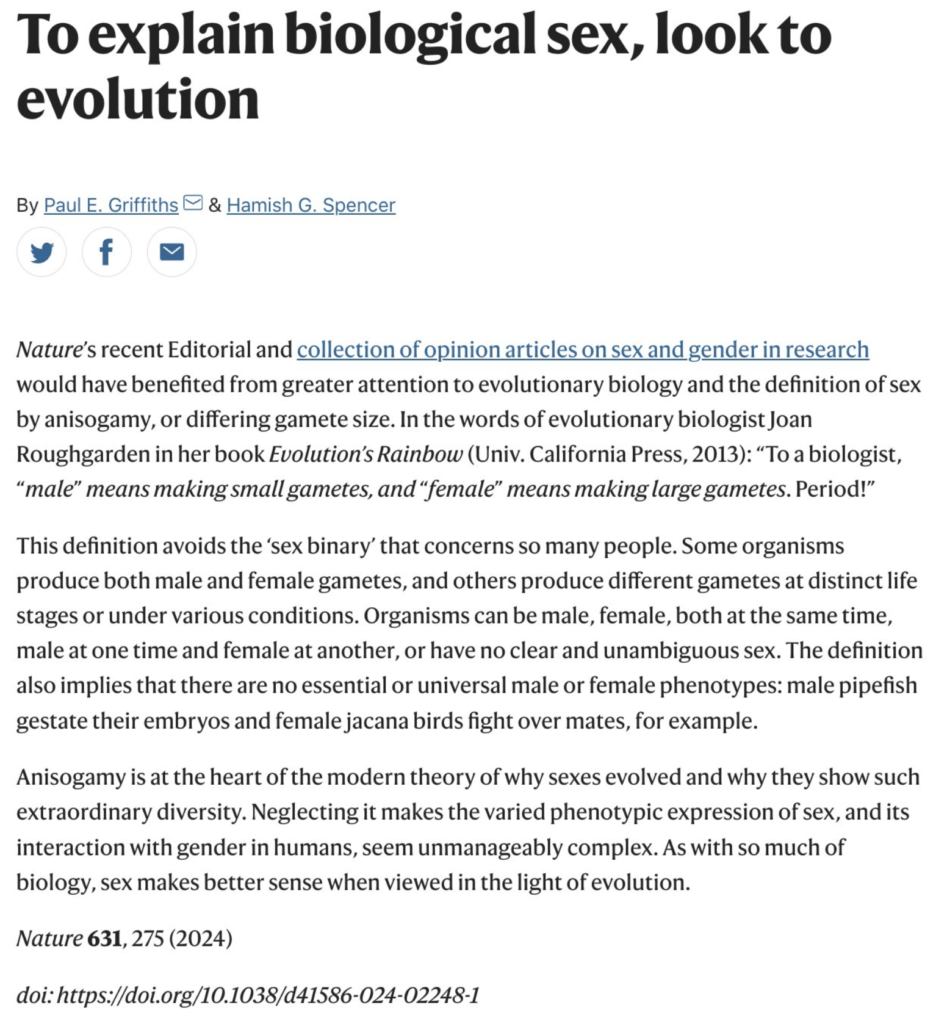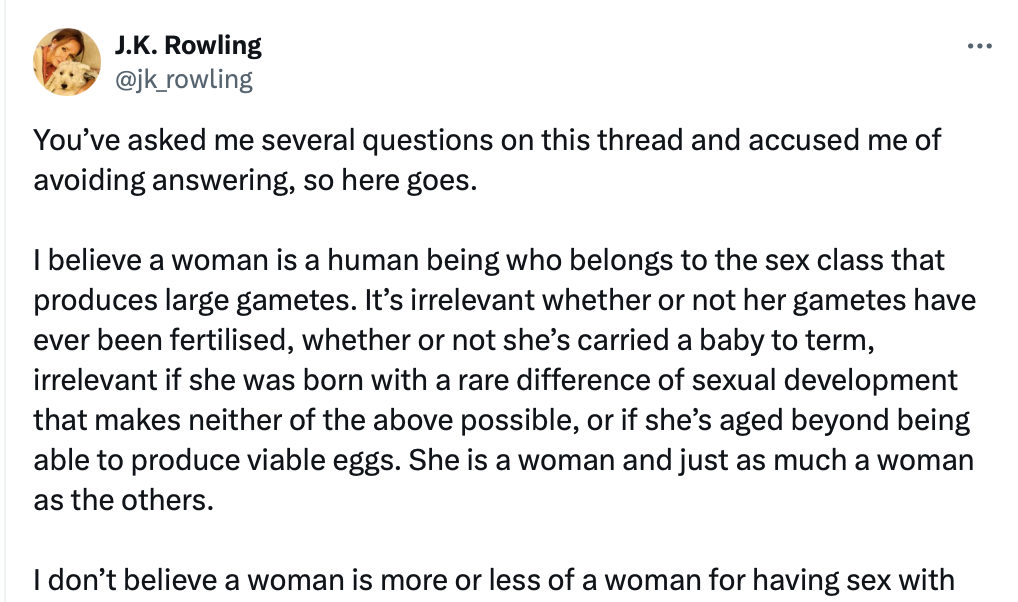You’ve asked me several questions on this thread and accused me of avoiding answering, so here goes.
I believe a woman is a human being who belongs to the sex class that produces large gametes. It’s irrelevant whether or not her gametes have ever been fertilised, whether or not she’s carried a baby to term, irrelevant if she was born with a rare difference of sexual development that makes neither of the above possible, or if she’s aged beyond being able to produce viable eggs. She is a woman and just as much a woman as the others.
I don’t believe a woman is more or less of a woman for having sex with men, women, both or not wanting sex at all. I don’t think a woman is more or less of a woman for having a buzz cut and liking suits and ties, or wearing stilettos and mini dresses, for being black, white or brown, for being six feet tall or a little person, for being kind or cruel, angry or sad, loud or retiring. She isn't more of a woman for featuring in Playboy or being a surrendered wife, nor less of a woman for designing space rockets or taking up boxing. What makes her a woman is the fact of being born in a body that, assuming nothing has gone wrong in her physical development (which, as stated above, still doesn't stop her being a woman), is geared towards producing eggs as opposed to sperm, towards bearing as opposed to begetting children, and irrespective of whether she's done either of those things, or ever wants to.
Womanhood isn't a mystical state of being, nor is it measured by how well one apes sex stereotypes. We are not the creatures either porn or the Bible tell you we are. Femaleness is not, as trans woman Andrea Chu Long wrote, ‘an open mouth, an expectant asshole, blank, blank eyes,’ nor are we God’s afterthought, sprung from Adam’s rib.
Women are provably subject to certain experiences because of our female bodies, including different forms of oppression, depending on the cultures in which we live. When trans activists say 'I thought you didn't want to be defined by your biology,' it’s a feeble and transparent attempt at linguistic sleight of hand. Women don't want to be limited, exploited, punished, or subject to other unjust treatment because of their biology, but our being female is indeed defined by our biology. It's one material fact about us, like having freckles or disliking beetroot, neither of which are representative of our entire beings, either. Women have billions of different personalities and life stories, which have nothing to do with our bodies, although we are likely to have had experiences men don't and can't, because we belong to our sex class.
Some people feel strongly that they should have been, or wish to be seen as, the sex class into which they weren't born. Gender dysphoria is a real and very painful condition and I feel nothing but sympathy for anyone who suffers from it. I want them to be free to dress and present themselves however they like and I want them to have exactly the same rights as every other citizen regarding housing, employment and personal safety. I do not, however, believe that surgeries and cross-sex hormones literally turn a person into the opposite sex, nor do I believe in the idea that each of us has a nebulous ‘gender identity’ that may or might not match our sexed bodies. I believe the ideology that preaches those tenets has caused, and continues to cause, very real harm to vulnerable people.
I am strongly against women's and girls' rights and protections being dismantled to accommodate trans-identified men, for the very simple reason that no study has ever demonstrated that trans-identified men don't have exactly the same pattern of criminality as other men, and because, however they identify, men retain their advantages of speed and strength. In other words, I think the safety and rights of girls and women are more important than those men's desire for validation.
I sincerely hope that answers your questions. You may still disagree, but as I hope this shows, I’m more than happy to have this debate.


